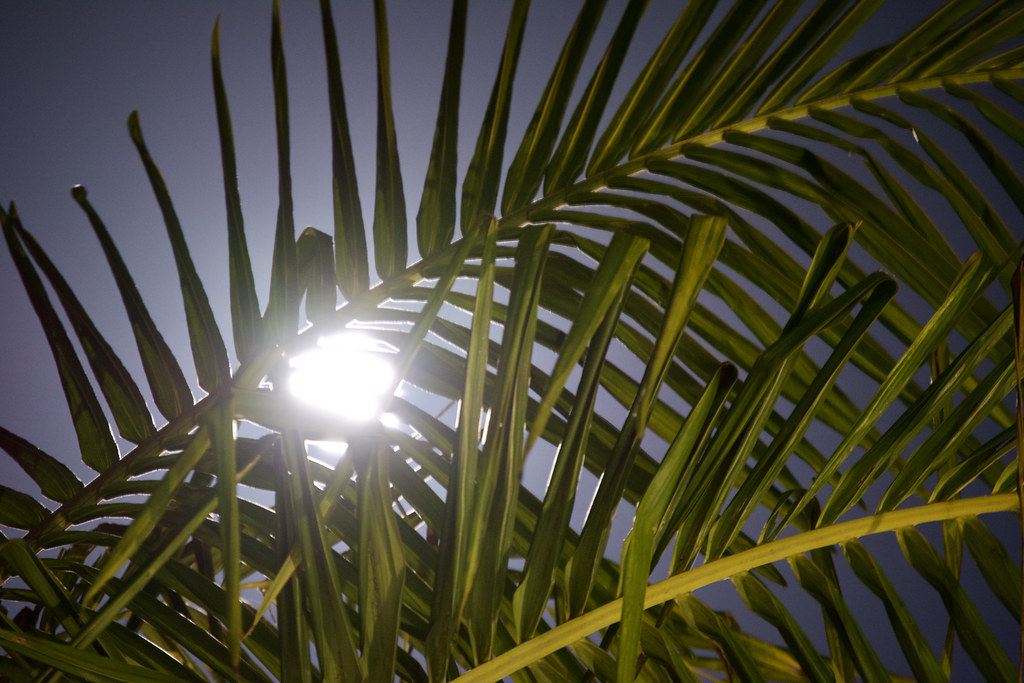 Photo from Flickr.
Photo from Flickr. As one of the most important holidays in the Jewish calendar, Sukkot celebrates the harvest while remembering the Israelites arduous pilgrimage through the desert upon their escape from Egypt. At the same time, it can invite a period of reflection on humanity’s relationship with nature. What does Sukkot tell us in the times of climate change?
Dominik Döhler, ZAVIT* – Science and Environment News Agency
Video on Sukkot and the Ecological Crisis:
By tradition, Jewish people around the world commemorate this cheerful holiday by building a Sukkah, a self-made hut or booth, in which they are required to eat for seven consecutive days. Depending on individual religious practices, some even sleep in their Sukkahs. The walls are often free-standing with an open door to welcome neighbors, family, and other people to join in on the festivities.
While being exposed to the outdoors with only a little makeshift hut to provide shelter from the elements, it becomes hard not to acknowledge one’s own physical vulnerability but also the intrinsic bond between humans and nature.
A separate commandment involves taking and waving the four species – a citron fruit, the frond of a date palm, a myrtle bough, and a willow branch.
Reusing on Sukkot
According to Rabbi Yonatan Neril, founder and executive director of the Interfaith Center for Sustainable Development in Jerusalem, there are a number of environmental linkages between Sukkot and ecology. “The four species which are being waved in prayer during Sukkot are all species that remain green during the dry season in the land of Israel. Sukkot comes at the time when the rainy season begins, so waving these four species connects to Jews beginning to pray for rain,” says Neril.
The second environmental linkage Neril mentions relates to the S’chach, which is the covering of the Sukkah that is made of vegetation. Neril says that according to the Talmud, Jewish farmers would use agricultural waste as their S’chach. “There is a teaching of Rabbi Natan of Breslov about the spiritual significance of taking agricultural waste and putting it as the S’chach in order to invite God’s imminent presence into the Sukkah. This teaching relates to reusing something that we otherwise would have thought of as waste.”
Neril refers to the waste of the grape harvest in September, which is followed by the Sukkot holiday. The reuse of the residue of the harvest, such as stems and leaves, instead of discarding them, is a fundamental lesson on reusing. It is especially relevant in today’s societies where use of disposable items is commonplace.
“We need to use everything in our possession to the fullest. This is a deep religious, ecological value. In that, there is a teaching against disposables because to use something once and then throw it out is not to use it to its fullest. We can use a durable cup hundreds of times,” Neril stresses.
Too little reuse and reduction in Israel
Indeed, Israel is lagging far behind when it comes to recycling, reducing, and especially reusing. The country is one of the biggest consumers of single-use plastics in the developed world, and estimated sales of disposables and plastic tableware add up to about $124 million. Dozens of stores that sell only single use products have opened in recent years in Jerusalem and other cities. On top of that, the only factory for plastic bottle recycling went bankrupt earlier this year, which means that currently, Israel is not recycling any of its plastic locally, but instead, shipping some of it to be recycled abroad.
Meanwhile, a new report from the World Wildlife Fund for Nature has found that Tel Aviv has the third-most plastic-polluted coastline in the Mediterranean. With 21 kilograms (46 pounds) of plastic waste per kilometer, Tel Aviv is only outdone by Barcelona with 26.1 kilograms (58 pounds), and Cilicia in Turkey with 31.3 kilograms (69 pounds) of plastic debris per kilometer.
Israel is by far not the only offender when it comes to excessive waste production and inadequate waste management. Nonetheless, the country also trails behind in its own goals regarding waste reduction and recycling. Every year, 5.3 million tons of municipal and commercial waste are generated, with an annual growth rate of 2%. Despite the fact that the Israeli government has set its goals, striving to recycle 50% of all waste by 2020, 75% percent of all generated waste still ends up in landfills.
Water and Sukkot
The third ecological connection between Sukkot and the environment that Neril discusses refers to the indispensability of water.
According to Neril, on Hoshana Raba, the seventh and last day of Sukkot, it is a religious custom to take five small willow branches and hit them into the earth as part of a prayer for rain.
“In my mind, this is one of the most ecological rituals in the Jewish tradition because willow trees only grow where there is an abundance of water. At this time of the year when the hillsides are dry, the willow tree is still green. Also, the ancient ritual of hitting the branches in the earth, touching the soil with the branches, is a physical act to ask God for rain, says Neril.
“In the society we live in today, where many people are disconnected from the earth, this is a very humbling idea,” he adds.
Being located in a geographical transition zone with large parts of the country dominated by a semi-arid climate, rainfall and water resources in Israel are scarce. In the past, the Sea of Galilee and underground aquifers have become perpetually over-pumped, which meant that other means of water production were needed to supply Israel’s growing population with enough fresh water.
Since 2003, Israel has built five desalination plants along its Mediterranean coast, producing some 585 million m^3 of drinking water per year.
Regardless of how much desalination has helped Israel to break away from the laws of nature in the short term in order to provide enough water for the people, this groundbreaking innovation has its drawbacks.
“One issue with desalination plants is that they burn fossil fuels to produce water, which is then not only used for drinking but to flush toilets, take showers, water the lawn, and wash cars. The other issue is that it makes people believe that our post-industrial technologically advanced society controls the world and controls nature, which it does not,” Neril says.
In Neril’s eyes, Sukkot is the perfect opportunity for everybody to spend time outside in their Sukkah and take a step back in order to reconnect with what society has lost in its relentless ambition to subjugate the natural world.
“We do have the power to degrade our common home, but the question remains, do we have the consciousness and the will to repair it?” he concludes.























 More news and opinions than at a Shabbat dinner, right in your inbox.
More news and opinions than at a Shabbat dinner, right in your inbox.